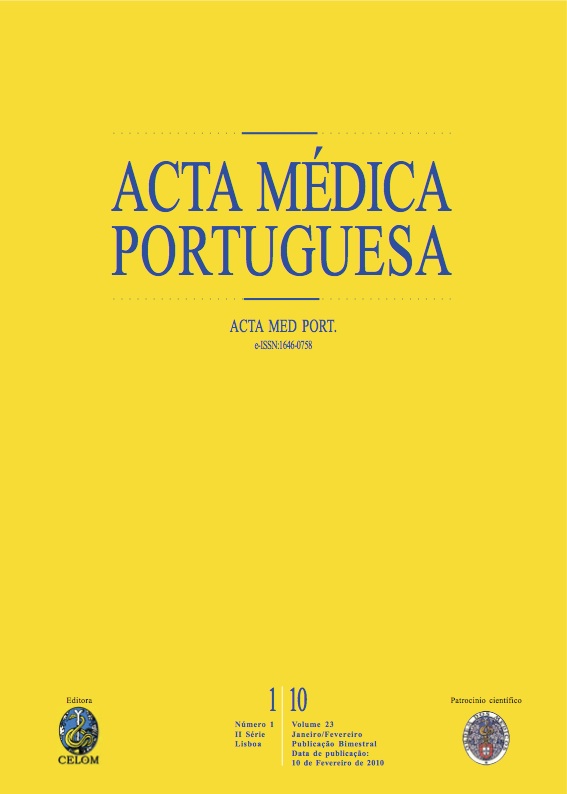Risk factors for Parkinson disease: an epidemiologic study.
DOI:
https://doi.org/10.20344/amp.599Abstract
The etiology of Parkinson's disease (PD) remains in a certain part unknown. Both genetic susceptibility and environmental factors are sometimes considered to be putative contributors to its origin. Recent epidemiologic studies have focused on the possible role of environmental risk factors present during adult life or aging, once pure genetic forms of PD are rare. The purpose of this study was to investigate possible environmental and familial risk factors for PD. We performed a hospital based case-control study using 88 PD patients with neurologist confirmed diagnostic, and 176 sex, age, and residence similar controls. Several possible risk factors were evaluated related to life style, past history, family history, occupational history and other exposures to potential neurotoxin agents. Statistical differences, using a 95% confidence interval, were observed in positive family history of PD (p = 0,002), occupation category (p = 0,001), rural living (p = 0,037), living/working near a industry (p = 0,017), exposure to pesticides, herbicides and in-secticides (p < 0,001), coffee consumption (p = 0,036) and tea consumption (p = 0,001). Sex and age adjusted logistic regression showed as potential risk factors, a positive family history of PD (odds ratio [OR] = 9,996; 95% confidence interval [CI] = 2,19-45,597), blue collar occupations (OR = 3,967; 95% CI = 1,670-9,426), exposure to pesticides, herbicides and insecticides (OR = 2,619 ; 95% CI = 1,170-5,862). An inverse relationship was found between tea consumption and the risk of PD (OR = 0,356; 95% CI = 0,174-0,727). The results of the study show that both familial and environmental factors may contribute to the development of PD. Like other studies suggest, PD is of unknown, but presumably multifactorial etiology.Downloads
Downloads
How to Cite
Issue
Section
License
All the articles published in the AMP are open access and comply with the requirements of funding agencies or academic institutions. The AMP is governed by the terms of the Creative Commons ‘Attribution – Non-Commercial Use - (CC-BY-NC)’ license, regarding the use by third parties.
It is the author’s responsibility to obtain approval for the reproduction of figures, tables, etc. from other publications.
Upon acceptance of an article for publication, the authors will be asked to complete the ICMJE “Copyright Liability and Copyright Sharing Statement “(http://www.actamedicaportuguesa.com/info/AMP-NormasPublicacao.pdf) and the “Declaration of Potential Conflicts of Interest” (http:// www.icmje.org/conflicts-of-interest). An e-mail will be sent to the corresponding author to acknowledge receipt of the manuscript.
After publication, the authors are authorised to make their articles available in repositories of their institutions of origin, as long as they always mention where they were published and according to the Creative Commons license.









